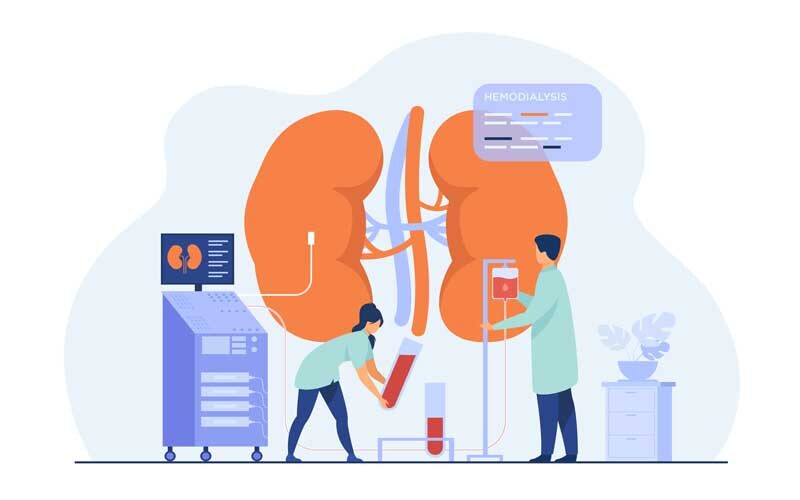In today’s world, where science and technology have reached unprecedented heights, organ transplantation stands as one of modern medicine’s most miraculous achievements—an act that grants a new lease on life. Yet, unfortunately, this life-saving opportunity is not equally available to all. In a reality marked by a severe shortage of organs, the question of “who receives a transplant” is often influenced less by medical urgency than by social status, economic means, and, at times, power.
Though we live under the ideal that all lives hold equal value, the organ transplant system reveals a stark hierarchy in how society assigns worth to human life. Behind hospital waitlists, the rise of transplant tourism, and unofficial organ transactions, the lines between medical ethics and harsh reality are increasingly blurred(Simmerling., 2007).
This article does not aim to discredit organ transplantation itself. Instead, it seeks to uncover the uncomfortable truths hidden behind the system—prompting us to ask how we decide who is chosen to live. In a society where privilege becomes a condition for survival, we must reconsider what true fairness means.
1. The Stratification of the Organ Transplant System
Although organ transplant priorities are officially based on medical urgency and compatibility, in practice, these rankings are often skewed by wealth and access to information. Those with elite status can leverage expensive private insurance, legal advisors, and personal connections to adjust their position in the queue. In contrast, low-income patients may face indefinite waits or even die before receiving a transplant.
This reality challenges the fundamental principle of equity(Morris et al., 2016) in healthcare. If every life is equally valuable, why isn’t access to life-saving treatment distributed accordingly? For many patients, survival has morphed from a matter of medical need into a question of personal privilege.
2. Global Inequality and the Commercialization of Life
Globally, the demand for organs far exceeds the supply, leading to a surge in illegal organ trafficking and transplant tourism. Wealthy patients travel to countries with looser regulations or ethical standards to purchase organs from the local poor or receive transplants in private clinics.
This is not merely a healthcare issue—it is a structure of global exploitation. The bodies of the poor are commodified to sustain the lives of the rich, and life itself becomes something to be bought, not preserved for its intrinsic dignity. In this market-driven world, organs are no longer sacred—they’re priced commodities.
3. Where Goodwill Fails to Reach
Organ donation is often portrayed as a noble act, a gift of life to another. Yet the benefits of this altruism frequently fail to reach society’s most vulnerable. Despite claims of openness and fairness, donated organs may disproportionately go to those who are socially and politically connected.
One major reason for low public registration rates for organ donation is growing skepticism about how organs are allocated. Many wonder, “Will my donated organ really go to someone who needs it most?” Such doubts erode public trust and distort the altruistic spirit of donation, especially when distribution remains opaque and tilted toward the privileged.
4. Blind Spots in the System and the Silence of Power
On the surface, the organ transplant system appears to operate with transparency and fairness. But in truth, it is shaped by unseen forces and overlooked blind spots. The criteria for organ allocation are rarely communicated clearly to the public, and the average citizen has little ability to monitor or question the process.
Media and policy often highlight miraculous recoveries and heroic donations, but they remain largely silent on the suffering of those who wait endlessly or die without a transplant. Marginalized groups—undocumented migrants, the homeless, the disabled, or those in rural areas()—frequently lack the means or support to even enter the system. While the system’s architects and advocates are often among those who benefit most from it, the voiceless majority remain excluded and invisible.
In such a structure, backed by silent power, we must ask: Is life truly valued equally? Who decides whose life is saved, and based on what interests? Organ transplantation is no longer just a medical decision—it is an ethical question, and the silence surrounding the marginalized must no longer be ignored.
The Weight of Life Must Be Equal
Organ transplantation is a noble endeavor, a testament to human compassion and scientific progress. But we must also face the uncomfortable questions it raises. Who determines the value of a life? Why does a selfless act like organ donation result in such unequal benefits?
The transplant system is not just a matter of medical logistics—it is deeply tied to power, privilege, and the distribution of social influence. When only certain groups have access while others are expected to donate without benefit, the very dignity of life is compromised. Once qualifications and conditions are placed on who “deserves” to live, we lose sight of life’s essential equality.
Now is the time for change. A fair transplant system does not begin and end with waitlists—it requires a structural overhaul that eliminates inequality(Axelrod et al., 2010), amplifies marginalized voices, and places intrinsic human value above all else.
Organ transplantation is a life-or-death decision. Only when these decisions are made with justice and transparency can we claim to truly respect life. The weight of life must be the same for all.
Reference list
Axelrod, D.A., Dzebisashvili, N., Schnitzler, M.A., Salvalaggio, P.R., Segev, D.L., Gentry, S.E., Tuttle-Newhall, J. and Lentine, K.L. (2010). The Interplay of Socioeconomic Status, Distance to Center, and Interdonor Service Area Travel on Kidney Transplant Access and Outcomes. Clinical Journal of the American Society of Nephrology, [online] 5(12), pp.2276–2288. doi:https://doi.org/10.2215/cjn.04940610.
Morris, A.A., Kransdorf, E.P., Coleman, B.L. and Colvin, M. (2016). Racial and ethnic disparities in outcomes after heart transplantation: A systematic review of contributing factors and future directions to close the outcomes gap. The Journal of Heart and Lung Transplantation, 35(8), pp.953–961. doi:https://doi.org/10.1016/j.healun.2016.01.1231.
Simmerling, M. (2007). Beyond Scarcity: Poverty as a Contraindication for Organ Transplantation. AMA Journal of Ethics, 9(6), pp.441–445. doi:https://doi.org/10.1001/virtualmentor.2007.9.6.pfor1-0706.
